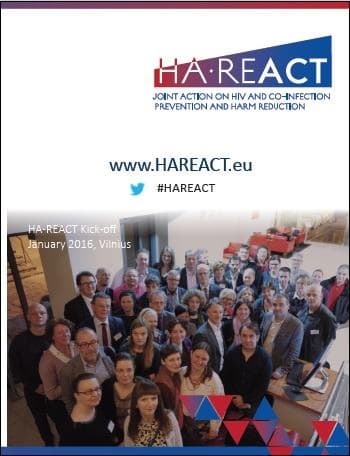This leaflet discribes the three-year project, which was launched in late 2015 with core funding from the European Union (EU), and is being implemented by 23 partners representing 18 EU Member States.
The overall aim of HA-REACT is to significantly contribute to the elimination of HIV and to reductions in cases of TB and viral hepatitis among PWID in the European Union by 2020. This objective is aligned with strategic action plans issued by the European Union, the World Health Organization, UNAIDS and the United Nations Office on Drugs and Crime.
